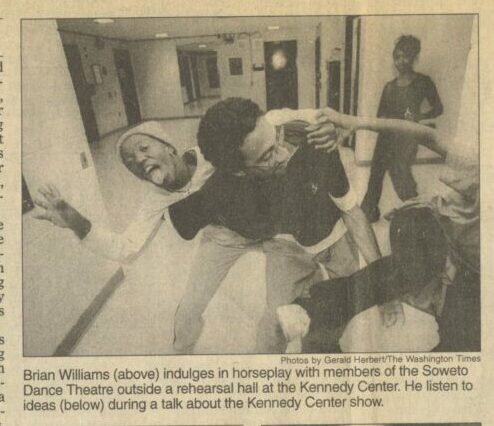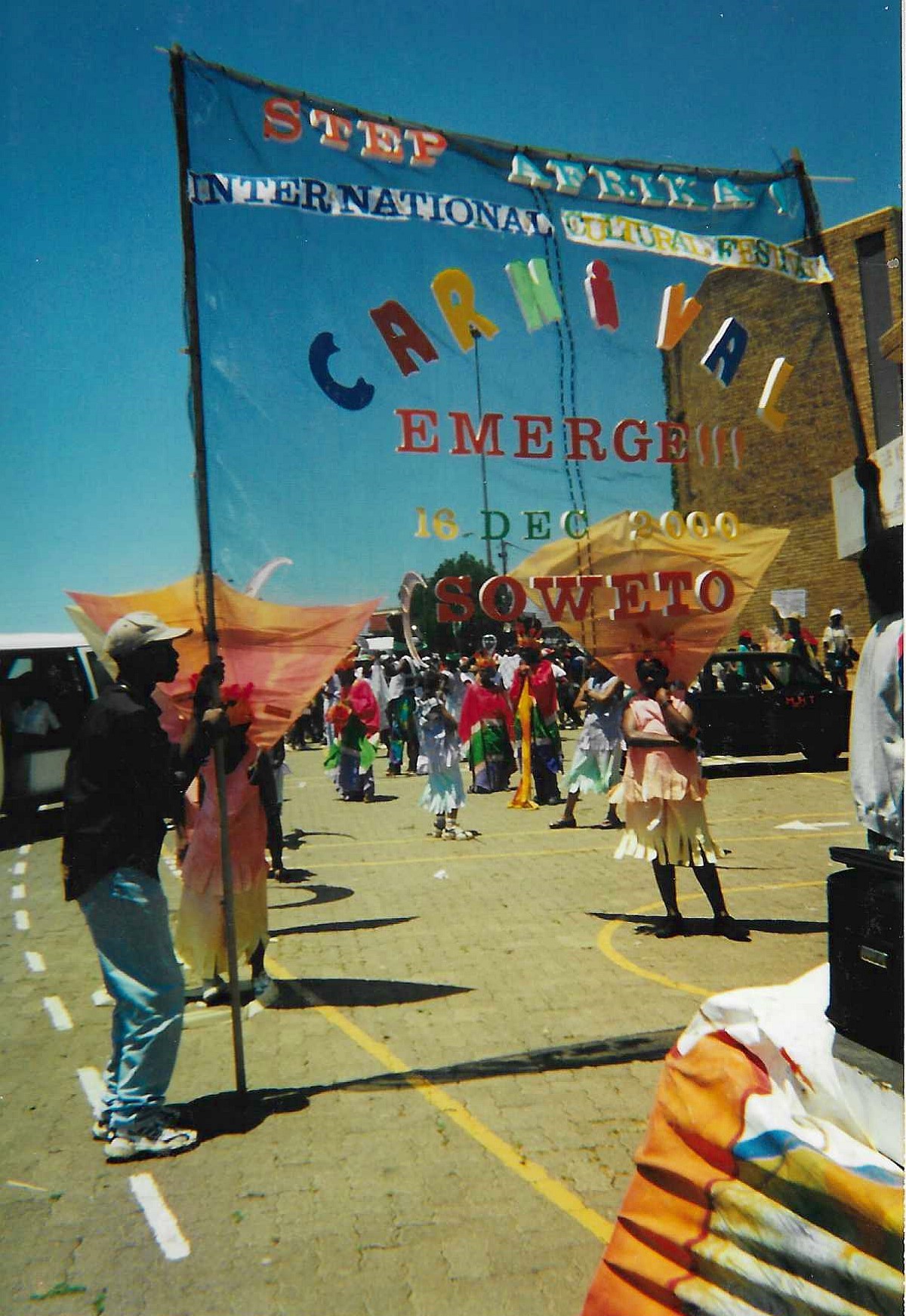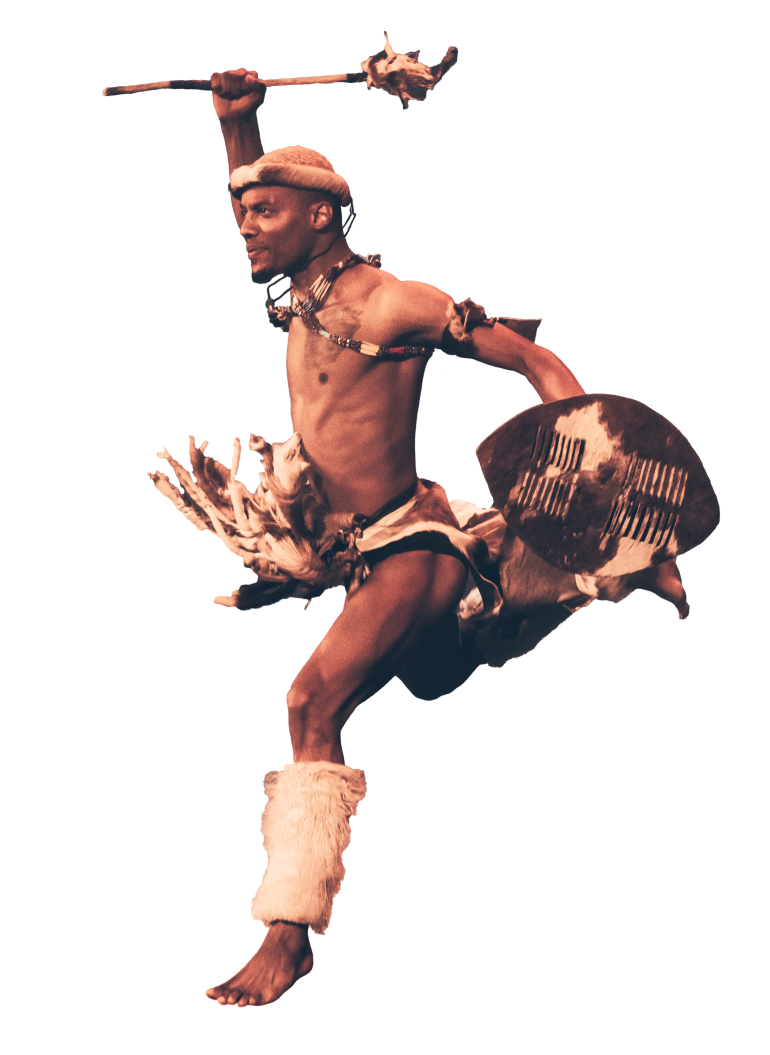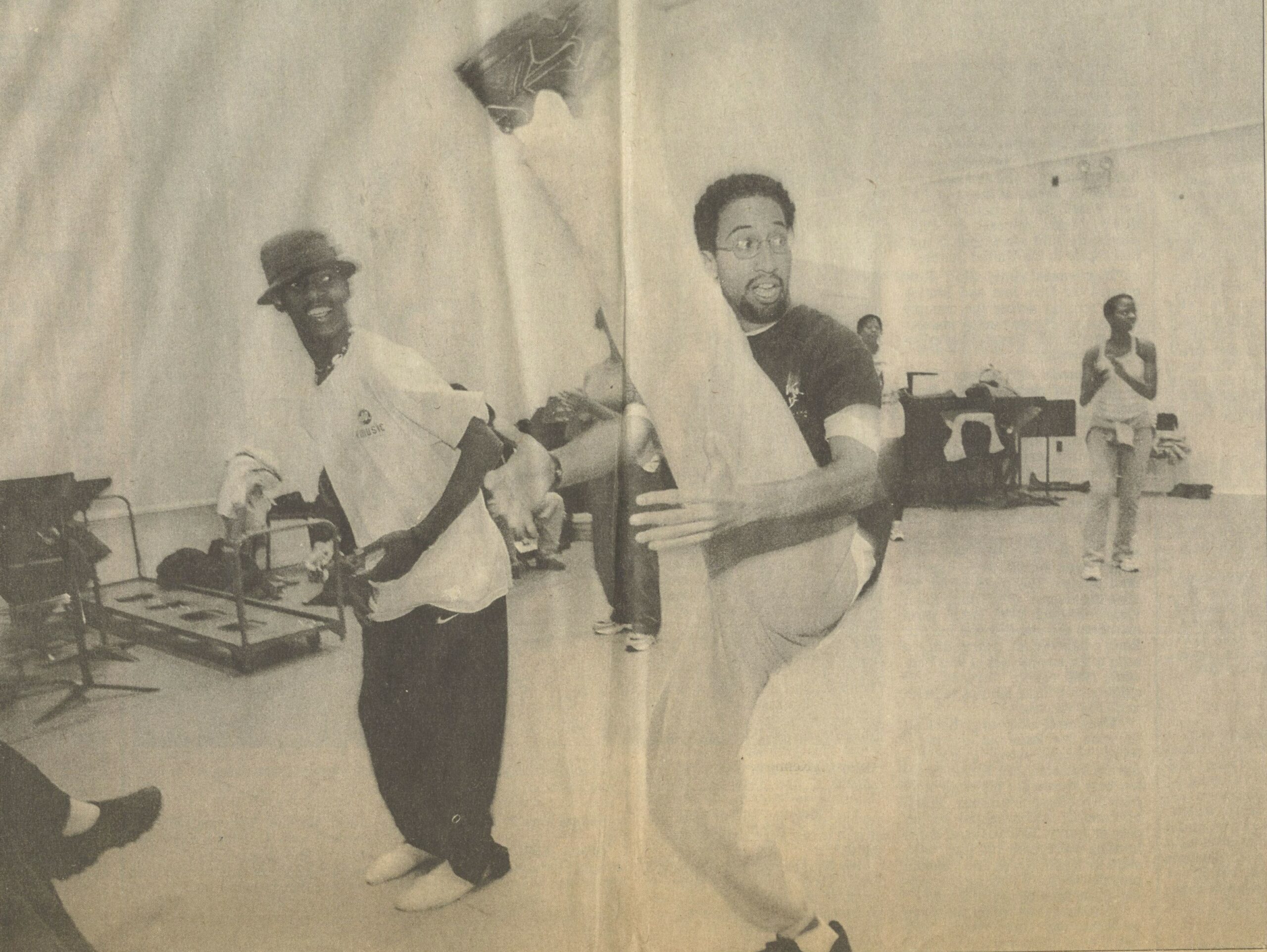On January 18, 2000, The Washington Times profiled C. Brian Williams about Step Afrika!’s ongoing Kennedy Center partnership in a piece titled “In step with African Dance”. From December 17-23, Step Afrika! was joined by the Soweto Dance Theater for 10 sold-out shows in the old Family Theater on the 5th Floor of the Kennedy Center.
Step Afrika!’s educational partnerships weren’t only expanding in the DMV! In the year 2000, the Company signed with GTHQ with Greg Polvere, its first official agent representing Step Afrika! in schools. Step Afrika! made its first appearances at American colleges and universities, starting in Peoria, IL, and received its first official dance review. The Company even appeared on CNN, its first major domestic television appearance.
In step with African Dance
Written by Denise Barnes for The Washington Times, published January 18, 2000
Brian Williams founded Step Afrika, an international arts organization, after seeing familiar
rhythmic foot-stomping movements on a street in Africa. The high-energy steps reminded Mr. Williams, a member of Alpha Phi Alpha Fraternity Inc., of his school days on Howard University’s campus in Northwest.
He joined the first intercollegiate Greek-letter fraternity there, where he first learned to step. The fraternity was established for men of African descent in December 1906. Stepping originated on college campuses by black fraternities and sororities nationwide, Mr. Williams says.
Step Afrika, Mr. Williams says, is a collaboration between young American artists and the South African-based Soweto Dance Theatre. This weekend, Step Afrika brings its high-energy brand of precision stepping. long with traditional and contemporary African dance, to the Kennedy Center’s Theater Lab through Sunday, Jan. 23.

“People will see the results of the six-year exchange between young Americans and South Africans. We will represent our own American traditions and see what happens when the two cultures meet,” Mr. Williams, 31, says.
“Dance is Step Afrika’s way of connecting people. We’re friends, and dancing has brought us together…. When you dance, I think that you’re able to put your mind, body and soul into it. When you share dance, people have an opportunity to learn a lot about you,” he says.
Mbuyiselwa Jackie Semela agrees. As the artistic director of the Soweto Dance Theatre, Mr. Semela, 37, says the dance exchange has helped to bring people together and countries together. “We hope that this. will open a channel for more traditions to be presented in the United States, and that people will have an interest in learning more about South Africa,” Mr. Semela says.
…
Mr. Williams saw stepping as a medium to create connections between Americans and the continent of Africa. The exchange with his students in 1991 was his inspiration for establishing Step Afrika, he says. His friendship with the Soweto Dance Theatre began in 1994, in Johannesburg when Mr. Williams attended a performance that featured the dance group. They clicked immediately and found a common link with fraternity and sorority traditions and the gum boot dance.
“It shows our oneness as an African people all over the world. Without any doubt, we are one,” Mr. Semela says. As for Mr. Williams, Step Afrika represents a principle that Alpha Phi Alpha Fraternity Inc., was founded upon: scholarship, fellowship, good character, and uplifting humanity.”
VIEW THE FULL 2000 ARTICLE HERE
VIEW THE FULL STEP AFRIKA! X KENNEDY CENTER PROGRAM HERE
Earlier, in January of 2000, C. Brian Williams led a 7th delegation to the Step Afrika! International Cultural Festival in Johannesburg, South Africa. The final carnival took place on December 16, 2000, in Soweto, South Africa


Be A Part of Our History
Founded in 1994 by C. Brian Williams, Step Afrika! is the first professional company dedicated to the tradition of stepping. Under Mr. Williams’ leadership, stepping has evolved into one of America’s cultural exports, touring more than 60 countries across the globe. To share your Step Afrika! story, visit stepafrika.org/about/. Step Afrika!'s 30th Anniversary Timeline is made possible by the generous funding of Bloomberg Philanthropies, with additional support from the Mellon Foundation and the DC Commission on the Arts and Humanities.
ATTEND A PERFORMANCE
Get TicketsSUPPORT OUR PROGRAMS
Donate NowSTEP AFRIKA! EDUCATION
Learn MoreLEARN ABOUT STEP AFRIKA!
Learn More

 Back to Timeline
Back to Timeline
 Previous Moment
Previous Moment